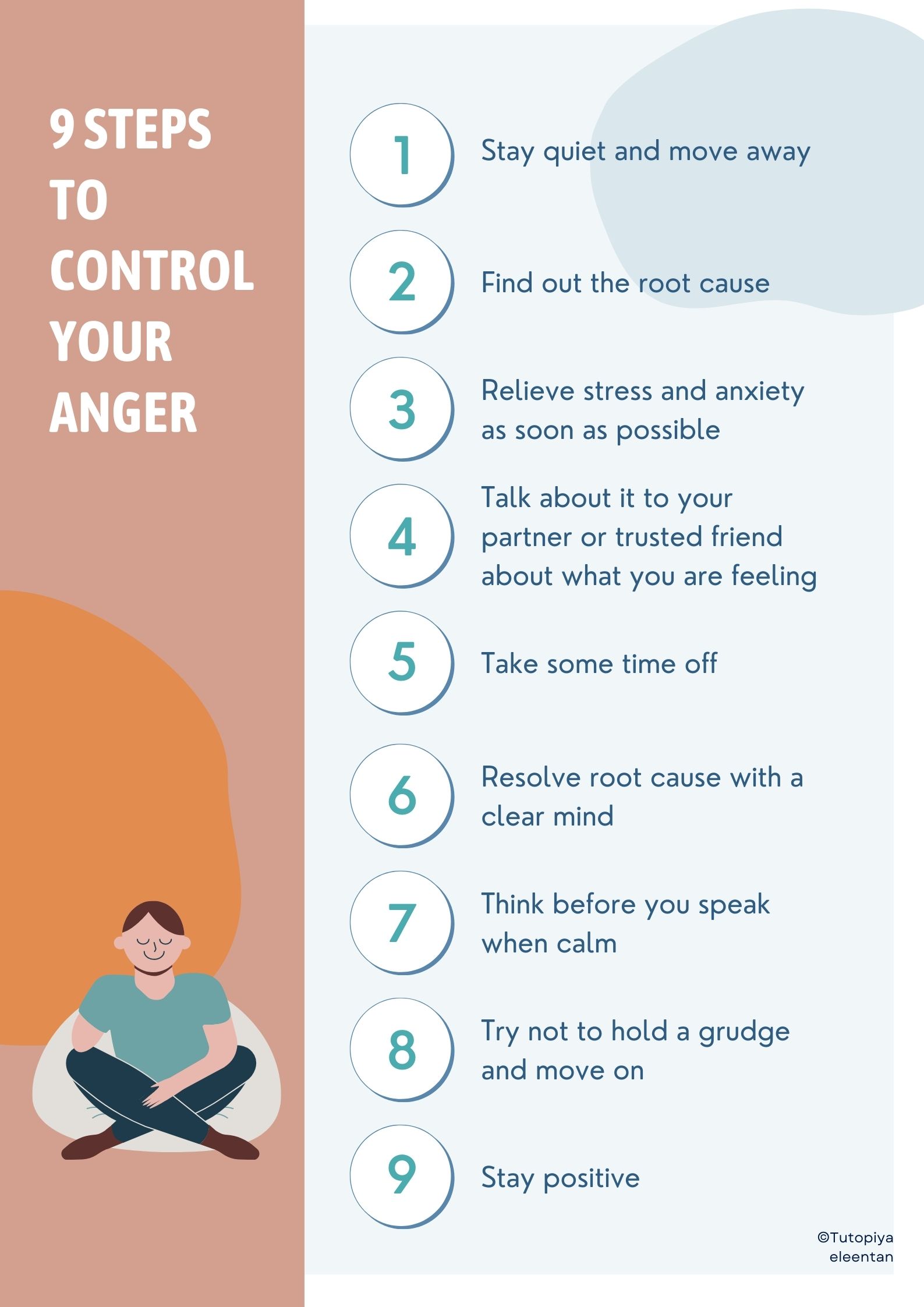- As parents, it is normal to feel negative emotions, but how do you exactly control your anger in front of your children and protect them?
As humans, it is normal to feel both positive and negative feelings. Especially as a parent, it can be difficult when you are juggling work, children, and personal life. Outbursts can be inevitable, but how can you control your anger, and find out why it is important to do that.
Read also: How to build your child’s confidence before an upcoming examination: 8 Effective Ways

How does your anger affect your child?
When we get angry, more often than not, we raise our voices, slam our things and say harsh things. These all have very negative effects on our children and the people around us and some of these effects include:
1 – Intimidate your child
Your child may become fearful of you after seeing how you become when you are angry. They might begin to feel uncomfortable and wary of you. They may not be themselves anymore in front of you in fear that they might step on your tail. This will definitely affect your relationship with your child in the long run.
2 – Children may blame themselves
When children are young, they don’t know what is up most of the time. They might not be at the age where they are able to understand negative emotions from their parents. Hence, when you get mad and lash it out at them, they might blame themselves and cause their self-esteem to decrease. This will affect your child’s growth and development, ultimately also affecting your relationship with your child.
3 – Make your children feel negative about themselves
When we get angry, more often than not we say things that we do not mean and say things that are hurtful to hear. When you lash out at your children with these hurtful words, they might feel unworthy and bad which can cause them to feel bad about themselves. It can have a negative effect on your child and they might grow up thinking that.
We certainly do not wish to cause any childhood trauma to our children, but build them a happy and blissful childhood that they will remember for the rest of their lives. Hence, learning how to control your anger as a parent is important. Here are 9 steps to help you control your anger when you feel like you are about to burst!

How to control your anger as a parent? 9 Steps to Control Your Anger
1 – Stay quiet and move away
You feel angry when your body reacts to something that it senses as a threat. You will feel your muscles tighten, heart rate increase and some may even experience redness in the face and hands. When you are feeling as such, keep quiet and move away. Tell everybody around you that you need some time alone and refrain from saying anything else. Then, move away from the thing or people that are making you feel that way.
Control your anger and refrain from lashing out in front of your children as you may startle them and cause them to feel fear and affect them mentally. Tell them to let you be alone and keep yourself away from them for the time being.
2 – Find out the root cause
Find out what is making you angry or annoyed. Does it involve other parties? Are you the culprit for overwhelming yourself unnecessarily? Did somebody cross your boundaries? Did somebody say something that triggered you?
3 – Relieve stress and anxiety as soon as possible
After you find out your root cause, try to prevent yourself from being triggered again. It is understandable that once we get mad or annoyed, we lose our patience more easily. Hence, when you notice that your emotions are fluctuating and you are starting to be annoyed, it is best to relieve all the stress and anxious feelings that you are building up to prevent yourself from losing your temper. Do whatever you need to relieve the stress and build up emotions, and ensure that you handle your emotions the best way possible without affecting your child.
4 – Talk about it to your partner or trusted friend about what you are feeling
After you have relieved the stress, there is no doubt that the problem is still at the back of your mind waiting to be triggered again. Bottling up your thoughts and feelings is like keeping a ticking bomb next to you. It is recommended to talk it out with somebody you trust and if it requires a solution to the problem, seek any advice you need from them.
5 – Take some time off
If you realize that you need more time to yourself to let your emotions settle, know that it is okay to take time off. It is okay to send your kids to your parent’s home for a few days while you sort out your emotions. It can be difficult to explain to your children what you are going through or feeling, hence it is not recommended to let them see that you are down or on edge when they are young. It can trouble them and affect their growth.
6 – Resolve root cause with a clear mind
After you have let your emotions rest and settle, the next course of action is to deal with the problem or the trigger. Depending on the scale of your root cause, you may wish to seek professional help wherever you see suit. Otherwise, having a clear mind is crucial for resolving the trigger or problem. You will need to think logically with a clear mind to make correct choices and decisions.
7 – Think before you speak when calm
Should your root cause and problem involve other parties, you should always think about what to say and how to say it before approaching them. You should also keep in mind that you should not involve your children in your personal problems and you have the responsibility to protect your children.
In the case where your child’s misbehavior is causing you stress and temperament issues, refrain from lashing out at them too. You should remain calm and mature and keep your words as kind and gentle as possible. Words can hurt for a long time and we certainly do not wish to say something we do not mean to our children just because we are angry.
8 – Try not to hold a grudge and move on
After you have expressed your thoughts and emotions regarding the root cause, it is time to let it go and move on. There is no point in holding a grudge. When you hold a grudge, you will have the tendency to speak about it every now and then, your children may also notice and remember the things you say which can affect the way they think and act.
9 – Stay positive
Being a parent can be overwhelming at times especially when you are juggling work at the same time. Be reminded that you can be kind towards yourself and have fun with life. You may be tied down by family and your children, but you are still allowed to have fun. Engaging in your favorite hobbies more often can increase your endorphins and happiness. Which in the long run, can have positive effects on your life and character.

In a nutshell, it can be hard to prevent lashing out when you have lots of build-up emotions but you will need to be able carefully to control your anger to prevent hurting your children.

Eleen Tan
I am currently a full-time student studying at a local university in Singapore while freelancing as a writer. I enjoy writing and sharing useful education-related tips with my fellow studying peers. During my leisure time, I enjoy doing creative arts and volunteering work. I am passionate about sharing my experience as a student! ☺






